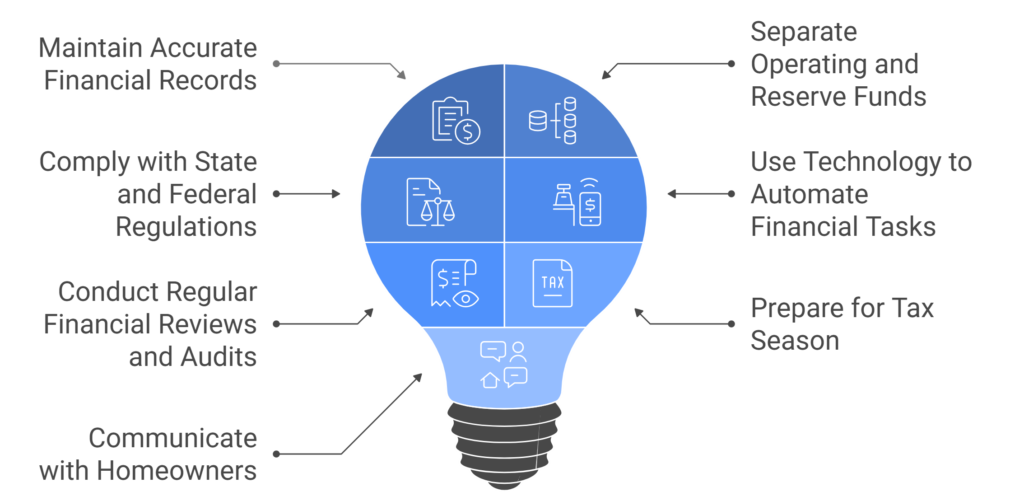Understanding the Property Management Chart of Accounts in Real Estate
A Property Management Chart of Accounts in Real Estate is the financial blueprint that organizes every dollar moving through your properties. It’s a standardized coding system that groups transactions into assets, liabilities, equity, revenues, and expenses, allowing you to track performance by unit, property, and portfolio with confidence. For real estate teams managing multiple entities or owners, a clear, consistent chart of accounts (COA) enables effective portfolio consolidation, trust accounting, and timely reporting. In this guide, we define what a COA is, why it matters, how to design it using property accounting best practices, and how Propertese helps automate the heavy lifting while preserving audit-ready accuracy.
Key takeaways:
- A standardized COA organizes every transaction into assets, liabilities, equity, revenues, and expenses for clear, audit-ready reporting.
- Consistent structures across entities enable consolidation, trust accounting, CAM reconciliations, and portfolio benchmarking at scale.
- Use durable numbering conventions and focused sub-accounts to balance insight with simplicity.
- Automate intake, coding, reconciliations, and controls to reduce errors and accelerate close cycles.
- Propertese streamlines COA governance and reporting with templates, workflows, and real-time analytics.
What is a Property Management Chart of Accounts?
A property management chart of accounts (COA) is a coding system that organizes and tracks every financial transaction for each property in a portfolio. Each transaction is categorized under assets, liabilities, equity, revenues, or expenses—enabling granular tracking and portfolio-wide analysis. This typically employs standardized numbering and naming conventions suited to real estate operations and reporting needs. A well-structured COA becomes the foundation for budgeting, audit trails, and financial clarity from single assets to entire portfolios, particularly when aligned across entities and owners.
Typical numbering conventions property teams use:
- 1000–1999: Assets (cash, escrow, buildings)
- 2000–2999: Liabilities (security deposits, loans)
- 3000–3999: Equity (owner contributions, retained earnings)
- 4000–4999: Revenues (rent, fees, recoveries)
- 5000–7999: Expenses (repairs, utilities, payroll)
For practical setup guidance tailored to real estate, see this overview of COA setup for real estate operations from Re-Leased (COA design, numbering, and trust structures), and this perspective on designing a real estate COA with auditability and management reporting in mind.
Importance of Chart of Accounts in Real Estate Management
A consistent COA structure is mission-critical for real estate. It enables clean rollups across properties and entities, portfolio-level P&Ls, and meaningful benchmarking without manual rework or error-prone mapping. It also supports timely audits, clear owner reporting, trust account segregation, CAM reconciliation, and disciplined budgeting when designed with real estate’s unique flows in mind. Conversely, fragmented or ad hoc COAs can lead to compliance issues, increased audit risk, and undermine confidence in owner distributions and investor updates—problems that compound as portfolios scale and teams change.
Key Categories in a Property Management Chart of Accounts
The five main categories organize transactions and reporting:
- Assets: Cash, operating and trust accounts, escrow, prepaid expenses, deposits, buildings, capital improvements.
- Liabilities: Security deposits held, tenant prepayments, accounts payable, accrued expenses, mortgages/notes, unearned revenues.
- Equity: Owner contributions/distributions, retained earnings, partner capital.
- Revenues: Base rent, percentage rent, late fees, application fees, CAM recoveries, utility bill-backs, parking/storage.
- Expenses: Repairs and maintenance (e.g., plumbing, HVAC, electrical), utilities, property taxes, insurance, management fees, marketing, payroll.
Repairs and maintenance often benefit from sub-accounts by trade (plumbing, HVAC, electrical) to highlight cost drivers and vendor performance without overcomplicating coding; reserve sub-accounts for recurring, material distinctions.
Trust accounting requirements mean owner funds and tenant deposits must be segregated with distinct cash and liability accounts, specific reconciliation cadences, and access controls.
Sample view of COA groupings:
| Category | Example Sub-Accounts |
|---|---|
| Revenue | Rent, Late Fees, CAM Recoveries |
| Expenses | Repairs (Plumbing, HVAC), Utilities |
| Assets | Cash, Escrow Accounts, Buildings |
| Liabilities | Security Deposits, Loans |
| Equity | Owner Contributions, Retained Earnings |
Challenges in Managing a Property Management Chart of Accounts
Common pitfalls include manual data-entry errors, bloated lists of duplicative accounts, inconsistent naming and numbering, and fragmented COAs across entities or software—especially when portfolios span different managers or legacy tools. The result can be delayed reconciliations, slow month-end closes, elevated audit risk, and unreliable financial reporting. Misclassifying trust-related activity or tenant deposits may also create compliance vulnerabilities and jeopardize owner confidence. These issues multiply in multi-entity accounting environments where consolidation and eliminations depend on perfect COA alignment.
Best Practices for Designing and Maintaining a Chart of Accounts
Adopt a durable, scalable structure:
- Standardize naming and numbering, aligning entities and properties to a common template with reserved ranges for local nuances.
- Use sub-accounts sparingly for recurring, material categories (e.g., repairs and maintenance by trade) to improve insight without clutter.
- Configure automation and enforce validation: required property/entity tags, default coding rules, and restricted lists to reduce miscoding.
- Conduct quarterly COA reviews to prune, merge, or re-map stale accounts to reflect operational changes.
- Document mapping rules for consolidations, train teams, and align controls with recognized audit/security frameworks (e.g., SOC 2 principles).
Control checklist for an audit-ready COA:
| Control/Review | Frequency | Objective |
|---|---|---|
| Bank and trust three-way reconciliations | Monthly | Verify cash, trust ledgers, and liabilities |
| COA change log with approvals | Ongoing | Preserve integrity and traceability |
| Role-based posting and approval limits | Ongoing | Enforce segregation of duties |
| Exception report review (uncoded/miscoded) | Weekly | Catch and correct errors early |
| Close calendar with prepared-by-client checklist | Monthly | Standardize and accelerate close |
| Vendor master data review | Quarterly | Reduce fraud and duplicate vendors |
| Consolidation mapping validation | Quarterly | Ensure rollups remain accurate |
For step-by-step setup, see our guide on the basics of a rental property chart of accounts.
Role of Technology and Automation in Chart of Accounts Management
Modern property accounting platforms, like Propertese, streamline COA consistency with pre-configured templates, robust ERP integrations, OCR-driven invoice capture, and automated bank reconciliation—reducing manual errors and supporting real-time reporting for faster, more accurate closes.
Manual vs. automated COA workflows:
- Intake and coding: Manual keying and free-text GLs vs. OCR capture with required fields and rule-based coding.
- Validation: Ad hoc spot checks vs. system-enforced property/entity tags, trust indicators, and spend thresholds.
- Reconciliations: Spreadsheet tie-outs vs. bank feeds with auto-matching, exception queues, and audit trails.
- Reporting: Static exports vs. live dashboards with consolidated, property, and owner statements on demand.
Explore how to automate repetitive inflows like recurring rent with our guide to automate rental income tracking.
How Propertese Supports Effective Chart of Accounts in Real Estate
Propertese unifies fragmented financial operations for mid-to-large portfolios with deep ERP integrations, customizable workflows, and real-time portfolio analytics designed for multi-property and multi-entity environments. Our platform:
- Enforces standardized COA templates across entities while allowing for property-level nuances.
- Automates invoice capture, coding, approvals, and bank reconciliations with audit-ready trails.
- Supports trust accounting with property-level segregation, role-based access controls, and three-way reconciliation workflows to reduce audit friction.
- Delivers live dashboards and drill-through reporting for owners and asset managers, connecting operational signals with financial outcomes.
Learn more about managing operating and trust accounts in our bank account management guide, and streamline collections with Propertese’s online rent payments and collections.
Emerging Trends Impacting Property Management Chart of Accounts
PropTech and AI are pushing COAs toward greater granularity and automation, with growing demand for real-time reporting, cross-system data integrations, and transparent owner reporting. Sustainability and ESG metrics are also moving into the core ledger—requiring accounts to track energy, water, waste, and climate-related expenses alongside traditional CAM and repairs and maintenance. As tokenization and new financing structures evolve, periodic COA reviews become a strategic lever to preserve comparability, meet regulatory expectations, and future-proof analytics.
Frequently Asked Questions About Property Management Chart of Accounts
What are the five main categories in a property management chart of accounts?
The five core categories are assets, liabilities, equity, revenues, and expenses. Together they organize and report all transactions clearly across properties and portfolios.
Why is a standardized chart of accounts important for multi-property portfolios?
Standardization enables consistent reporting and accurate roll-ups, making consolidation, benchmarking, and trend analysis reliable and fast.
Should property managers use cash-based or accrual-based accounting?
Cash works for small portfolios focused on cash flow timing, while accrual provides a truer performance picture for larger or financed portfolios.
How does trust accounting affect the chart of accounts setup?
Trust accounting requires strict separation of owner funds and tenant deposits in both cash and liability accounts, with dedicated reconciliations.
What are depreciation and amortization in property management accounting?
Depreciation allocates the cost of tangible assets like buildings over their useful life; amortization does the same for intangibles to accurately reflect value over time.








